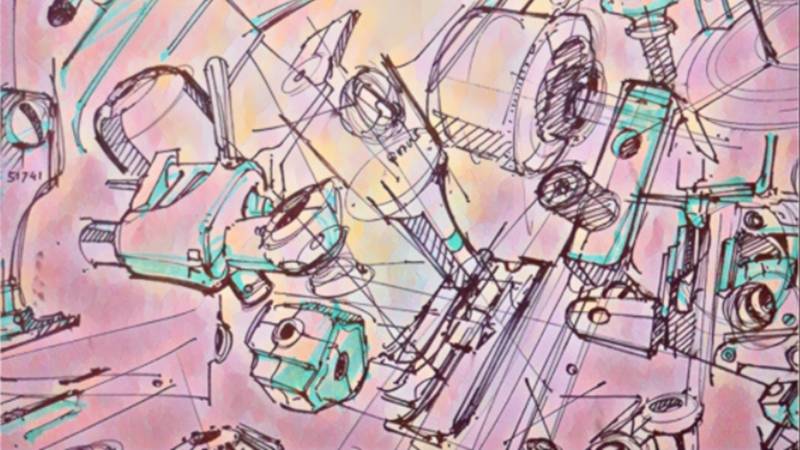
As the year winds down and the new year 2024 appears on the horizon, I will be marking 50 years of my professional career as an engineer. What an exciting journey it has been!
To become an engineer, in 1969 I got myself admitted to Sindh University Engineering College (now known as Mehran University of Engineering and Technology) in Jamshoro, a sprawling university campus outside Hyderabad (Sindh) where I grew up. Schooling in Hyderabad was very routine and most of my classmates were from the same urban neighbourhoods. We spoke the same language, had the same social and cultural background and our school days were pretty normal.
Life in Jamshoro was very different. Here, I met classmates who were from all over the place. In addition to the Hyderabad area there were students from interior Sindh, other provinces such as Punjab, Baluchistan, and North West Frontier Province (now known as Khyber Pakhtunkhwa Province), and also from abroad such as from Egypt, Syria, Jordan and Palestine. This presented a multicultural environment of students with different linguistic and cultural backgrounds.
The diversity in my class initially posed some challenges in getting to know each other and bonding. However, after a while, we all went along very well. This diversity in fact enriched my life by broadening my worldview, which until then was limited to life in urban Hyderabad. This experience later helped me in being able to live and work with people of very different backgrounds.
At the university, there were only three engineering disciplines available at that time – civil, mechanical and electrical. Together there were about 120 students in my batch. The engineering profession was still of not much appeal to the girls and as such there were no girls in our university at that time. The equipment in the labs and workshop were of decent quality. There were no computers in the early 1970s.
We were blessed with an excellent faculty of professors and lecturers who, despite limited facilities and resources, taught us with dedication and responsibility. What little success I later had in my career I attribute that to them.
After graduation in 1974, it wasn’t too difficult to land a job in my field in Karachi. The job market for engineers was relatively good at that time as the government was heavily investing in industrialisation by establishing several heavy and light industries and expanding others. So, there were plenty of engineering jobs around. As far as I know, all my colleagues found a job sooner or later.
My journey as an engineer took me from Jamshoro to Karachi, then to Japan for a year, and finally to Canada where I have been living for the last 45 years. Throughout this exciting journey, I had the opportunity to work in a variety of engineering jobs in both the private and public sectors and worked with people of diverse ethnic, social, cultural and geographic backgrounds. This amazing experience tremendously enriched my life. In addition to technical learning, I learned a lot about people their culture, faith, habits, behaviour, and work ethics.
While the engineering school provided me with a solid academic foundation the learning continued throughout my career not only at work but also at academic institutions. Engineers must continually update their knowledge and skills to keep up with the new technology and to be productive and innovative. I enrolled in university programs in business administration, masters in engineering, and computer and software engineering in addition to numerous technical courses in defence sciences and technologies.
I belong to the baby boomers’ generation, so during my time at the university for a baccalaureate degree in mechanical engineering, there was no internet, no computers, not even calculators. We used a slide rule. In case you are wondering what that is, it is a hand-operated gadget of sliding rulers to perform complex mathematical calculations. Since then, my generation has used everything that happened in the evolution of computer, communication and network technology such as punch cards, magnetic tapes, floppy discs, CDs, DVDs, mainframe computers, desktop computers and now laptops.
For today’s engineers of Gen X, Millennials and Gen Z, there is no shortage of engineering tools, gadgets and aids to practice their craft. They are well into the digital age of engineering. Computers and communication networks have revolutionised the engineering landscape. There is an abundance of data available to deal with just about any engineering problem using data analytics, simulation and modelling and now developing machine learning models such as generative artificial intelligence. There is a lot to learn and exploit in new and emerging technologies such as 3D printing, additive manufacturing, composite materials, nanotechnology, autonomous systems, renewable energy technologies, quantum mechanics and space-based technologies. For them, even the sky is not the limit!
At my retirement, I was asked if I had any advice for young engineers of today. My advice to them was to be creative in their work.
Push the envelope to find cutting-edge solutions to today’s problems of climate change, and sustainable development. Don’t cut corners in the haste to reach a solution. We engineers don’t save lives like doctors do, but our bad decisions can put many lives at risk. Leverage connectivity and networking resources to collaborate with others globally and share expertise to solve common problems. Contribute to humanity. Make the world a better place to live for this and future generations. Maintain high ethical standards.
The future is bright for young engineers. Here is to the next generation of engineers!

